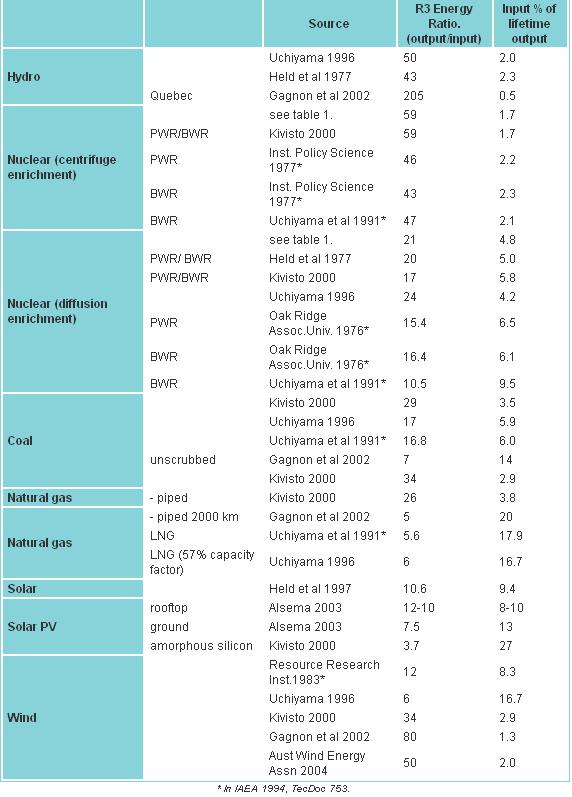Wikipedia on (EROEI) energy returned based on energy invested.
In physics, energy economics and ecological energetics, EROEI (Energy Returned on Energy Invested), ERoEI, or EROI (Energy Return On Investment), is the ratio of the amount of usable energy acquired from a particular energy resource to the amount of energy expended to obtain that energy resource. When the EROEI of a resource is equal to or lower than 1, that energy source becomes an “energy sink”, and can no longer be used as a primary source of energy.
This an important issue because oil used to have a very high energy return on energy invested but it has been falling. Those who forecast a bad energy future claim that this EROEI will fall to cause a collapse or irreversible decline of civilization. If there are replacement energy sources with good EROEI then the claims of a future energy catastrophe are debunked. I think the doomsday scenarios of all fuel falling below EROEI 1 or longterm unending decline scenarios are wrong. We should and will do more to fix energy sources and infrastructure and we have the money (46 trillion in international bonds, 6 trillion more each year, plus about 33% of worldwide 45 trillion GDP in government federal, state and local taxes) and resources to do it.
Here is a chart of energy sources with their energy returned based on energy invested. The sources and dates of the studies are listed. The list was compiled by the nuclear energy regulatory agencies, but the sources can be referenced for methodology and assumptions. 
The nuclear industry claims energy return ratios of (diffusion enrichment) 17.5 and
(centrifuge enrichment) 58.
The assumptions do not include that about 80% of reactors are being extended to 60 years of usage instead of 40 years and that current operating efficiency is 90% and not 80%.
The environmental activists claim that the EROEI for nuclear is only 5 to 1. 5 times as much energy as invested. Another Green environmental source is conserve magazine

Brian Wang is a Futurist Thought Leader and a popular Science blogger with 1 million readers per month. His blog Nextbigfuture.com is ranked #1 Science News Blog. It covers many disruptive technology and trends including Space, Robotics, Artificial Intelligence, Medicine, Anti-aging Biotechnology, and Nanotechnology.
Known for identifying cutting edge technologies, he is currently a Co-Founder of a startup and fundraiser for high potential early-stage companies. He is the Head of Research for Allocations for deep technology investments and an Angel Investor at Space Angels.
A frequent speaker at corporations, he has been a TEDx speaker, a Singularity University speaker and guest at numerous interviews for radio and podcasts. He is open to public speaking and advising engagements.



To the stars… one nuke at a time.